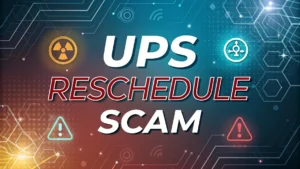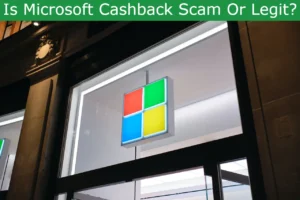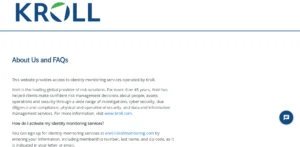In the fast-growing world of cryptocurrency, scammers work day and night to create new ways to steal digital assets. One dangerous scheme making rounds on social media is the Plerox.com crypto scam.
This platform uses fake celebrity endorsements and promises of free Bitcoin to trick people into sending real cryptocurrency.
The scammers have created an elaborate system that looks real at first glance but exists only to steal your hard-earned money.
This post shows how the Plerox scam works, helps you spot similar scams, and gives you practical tips to protect your crypto investments.
Key Takeaways
- Plerox.com is a fraudulent cryptocurrency platform that uses deepfake videos of celebrities like Cristiano Ronaldo and Elon Musk to appear legitimate
- The scam works through fake promo codes that seem to add free Bitcoin to your account but actually trick you into making real deposits
- Deposits cannot be withdrawn until users send additional Bitcoin for “verification,” which the scammers immediately steal
- Red flags include unrealistic promises of free cryptocurrency, celebrity endorsements not confirmed on official channels, and requests to make deposits to enable withdrawals
- Similar scams operate under different names including Bitsowex.com, Bitxspark.com, Nevofex.com, and Tokenely.com
- Always verify cryptocurrency platforms through official registration databases before depositing any funds
- Never trust online offers of free Bitcoin or claims that require you to send cryptocurrency first
- Deepfake technology makes videos look increasingly convincing, so cross-check any celebrity endorsements through official channels
- Report scams immediately to authorities including the FBI, FTC, and SEC if you encounter them
- Most cryptocurrency lost to scammers cannot be recovered, making prevention essential
How the Plerox.com Scam Operates
The Plerox.com scam uses a clever system to steal cryptocurrency from unsuspecting victims. The scam starts with fake videos that look real and ends with stolen Bitcoin. Here is how it works step by step.
First, scammers create videos that appear to show famous people like Cristiano Ronaldo or Elon Musk talking about a Bitcoin giveaway. These deepfake videos use artificial intelligence to make it look like celebrities are actually promoting Plerox.com. The videos often claim that the celebrity is partnering with Plerox for a special promotion where users can get free Bitcoin just by signing up and using a special code.
These fake videos spread widely across social media platforms like YouTube, TikTok, and Facebook. They use hashtags related to cryptocurrency and investing to reach people interested in making money with Bitcoin. Some videos even appear as paid advertisements targeted at crypto enthusiasts.
When victims click on links in these videos, they arrive at the Plerox.com website. The site looks professional with charts, trading tools, and testimonials. New users are prompted to register and enter the promo code mentioned in the video, such as “CR7” or “Tiktok11.”
After entering the code, users see about 0.31 BTC (worth thousands of dollars) added to their account balance. This makes victims think the promotion is real. However, when they try to withdraw this “free” Bitcoin, they receive a message saying they must make a small deposit first to “verify their account” or “activate withdrawals.”
The minimum deposit is typically around 0.005 BTC. The scammers claim this is just a verification step, but in reality, it’s the actual scam. Once victims send this real Bitcoin to the platform, the scammers take it immediately.
After collecting enough funds from many victims, the site suddenly disappears. Victims cannot log in, contact support, or recover their money. The scammers then set up new sites under different names and repeat the process.
Red Flags That Expose Plerox as a Scam
Several warning signs clearly mark Plerox.com as a fraudulent operation. Knowing these red flags can help you avoid this and similar scams.
One major red flag is that Plerox has no verifiable business history. Legitimate cryptocurrency exchanges have extensive documentation, including business registration, licensing information, and a clear company history. Plerox lacks all of these essential credentials.
The site also offers unrealistic rewards – free Bitcoin worth thousands of dollars just for entering a promo code. In the cryptocurrency world, nobody gives away valuable assets for nothing. If an offer seems too good to be true, it definitely is.
Another clear warning sign is the unauthorized use of celebrity names and images. Real celebrity endorsements for financial products are always announced through official channels and come with proper documentation. The deepfake videos lack any verification from the celebrities’ official social media accounts or press releases.
The requirement to deposit Bitcoin to enable withdrawals is perhaps the most obvious red flag. No legitimate trading platform forces users to deposit funds before they can withdraw money that’s supposedly already in their account.
Plerox also has very limited contact options. The site only offers a contact form rather than providing a physical address, phone number, or direct email. This makes it impossible to reach anyone when problems arise.
The domain name registration for Plerox.com is very recent, despite claims of being an established platform. A quick WHOIS lookup shows the domain was registered only weeks or months before the scam began operating.
Additionally, there are no regulatory compliances displayed on the site. Legitimate cryptocurrency exchanges must register with financial authorities and display their compliance information prominently.
Finally, there are no verified user reviews from trusted sources. The only positive reviews appear on the site itself and cannot be verified independently.
The Evolving Landscape of Celebrity Crypto Scams
The Plerox scam is part of a larger trend of cryptocurrency frauds that use celebrity images without permission. These scams have grown more sophisticated with advances in artificial intelligence and deepfake technology.
In recent years, scammers have increasingly targeted cryptocurrency investors by exploiting the public trust in well-known figures. The criminals create convincing fake videos of celebrities like Elon Musk, Bill Gates, Mark Zuckerberg, and sports stars promoting various crypto platforms and giveaways.
What makes these scams especially dangerous is the quality of the deepfakes. Early deepfake videos were easy to spot due to unnatural movements or audio problems. Today’s AI-generated content can be almost indistinguishable from real videos, making it harder for everyday users to identify fakes.
The scammers also use sophisticated distribution networks to spread their fake videos. They buy targeted advertisements on social media platforms, create fake accounts that look legitimate, and use hashtags to reach cryptocurrency communities. Some even hijack verified accounts or create look-alike profiles to further their deception.
Most concerning is how these operations adapt quickly when exposed. When authorities shut down one scam site like Plerox.com, the criminals simply create new domains with slightly different names and continue the same scheme. This has led to a whack-a-mole situation where similar scams appear under names like Bitsowex.com, Bitxspark.com, Nevofex.com, and Tokenely.com.
The psychological tactics used in these scams have also evolved. Scammers study human behavior and exploit specific vulnerabilities. They create artificial time pressure with limited-time offers, use social proof with fake testimonials, and leverage authority figures like celebrities to build trust.
Law enforcement agencies worldwide are working to combat these scams, but the decentralized nature of cryptocurrency and the anonymity it provides make prosecution difficult. By the time a scam is reported, the perpetrators have often moved on to new schemes.
How to Verify Legitimate Cryptocurrency Platforms
With cryptocurrency scams becoming more sophisticated, knowing how to identify legitimate platforms is essential for protecting your investments. Here are reliable ways to verify if a crypto platform is genuine before you invest.
First, check if the platform is properly registered with relevant financial authorities. In the United States, legitimate cryptocurrency exchanges must register as Money Service Businesses (MSBs) with the Financial Crimes Enforcement Network (FinCEN). You can verify registration status on the FinCEN website. Many states also have additional registration requirements.
Look for regulatory compliance information on the platform’s website. Legitimate exchanges prominently display their licensing details, registration numbers, and compliance with regulations like Anti-Money Laundering (AML) and Know Your Customer (KYC) policies.
Examine the platform’s physical address and contact information. Reputable businesses provide clear location details and multiple ways to contact their support team, including phone numbers that actually work. Verify the address is real using mapping services and check if it matches official registration records.
Research the company’s operational history. Legitimate exchanges have a trackable business history. Check when the domain was registered using lookup tools like ICANN’s WHOIS database. If a site claims to have been in business for years but has a domain registered only months ago, that’s a major warning sign.
Look for transparent ownership information. Legitimate crypto platforms disclose who runs the company. Search for information about the founders and leadership team. Verify their identities through LinkedIn profiles, previous business ventures, and media appearances.
Check for banking relationships. Established cryptocurrency platforms have connections with traditional financial institutions and payment processors. They offer various payment methods including bank transfers and credit cards. Scams typically only accept cryptocurrency deposits.
Read independent reviews from trusted sources. Look beyond testimonials on the platform’s own website. Check crypto forums, review sites, and consumer protection websites. Search the platform’s name along with words like “scam” or “fraud” to see if others have reported problems.
Verify the platform’s security measures. Legitimate exchanges implement strong security protocols including two-factor authentication, cold storage for funds, and regular security audits. They should explain their security practices clearly on their website.
Test the withdrawal process with a small amount before making large deposits. Legitimate platforms make withdrawing funds straightforward. If a site has complicated withdrawal requirements or excuses for delays, it’s likely a scam.
Finally, assess the platform’s transparency about fees and trading practices. Legitimate exchanges clearly disclose all fees and how they operate. Vague information about how the platform makes money is a red flag.
The Psychology Behind Crypto Scams
Understanding why people fall for cryptocurrency scams like Plerox helps us protect ourselves from similar frauds. These scams work by exploiting basic human psychology in specific ways.
One powerful technique scammers use is authority manipulation. When we see someone famous like Elon Musk or Cristiano Ronaldo supposedly endorsing a crypto platform, we tend to trust it more. Our brains use mental shortcuts that tell us “if someone successful trusts this, I can too.” This explains why fake celebrity endorsements are so effective in crypto scams.
The fear of missing out (FOMO) drives many victims to act quickly without proper research. Scammers create a sense of urgency with limited-time offers and claims that others are already making money. When we think an opportunity might disappear, we make hasty decisions rather than taking time to verify legitimacy.
Scammers also exploit our desire for easy wealth. The promise of free Bitcoin or extraordinary returns appeals to our natural wish for financial security without hard work. When Plerox shows a balance of 0.31 BTC appearing in an account just from entering a code, it triggers excitement that overrides caution.
The illusion of exclusivity makes victims feel special. Promo codes like “CR7” or “Tiktok11” create the impression of accessing an exclusive opportunity not available to everyone. This perceived privilege makes people less likely to question the offer’s legitimacy.
Another psychological trick is the foot-in-the-door technique. Scammers first ask for a small commitment (signing up with an email) before gradually increasing demands (making a “small” verification deposit). Each step seems reasonable on its own, making the final scam less obvious.
Social proof plays a major role too. Fake testimonials and inflated user numbers on scam sites convince potential victims that others have successfully profited. This creates a false sense of safety in numbers.
Scammers also use reciprocity bias – the feeling that we should return favors. When they appear to give something valuable (free Bitcoin in your account), you feel obligated to comply with their requests (making a verification deposit).
The complexity of cryptocurrency technology itself helps scammers. Many people don’t fully understand how blockchain and crypto transactions work, making it easier to accept explanations for unusual requirements like verification deposits.
Finally, once victimized, many people fall silent due to embarrassment and shame. This prevents warnings from spreading and allows scammers to continue finding new victims.
Steps to Take If You’ve Been Scammed
If you’ve fallen victim to the Plerox.com scam or a similar crypto fraud, act quickly to minimize damage and help prevent others from being victimized. Here are the essential steps to take.
First, stop all contact with the scammers immediately. Don’t send any more money or personal information, even if they promise to return your funds or fix the problem. Once you recognize it’s a scam, further communication only increases your risk.
Document everything related to the scam. Take screenshots of the website, save emails, messages, and transaction records. Capture all communications with the scammers and any promotional materials that led you to the site. This evidence will be crucial when reporting the fraud.
Report the scam to authorities as soon as possible. File reports with:
- The FBI’s Internet Crime Complaint Center (IC3) at IC3.gov
- The Federal Trade Commission at ReportFraud.ftc.gov
- The Securities and Exchange Commission at SEC.gov/tcr
- The Commodity Futures Trading Commission at CFTC.gov/complaint
- Your local police department
Contact your bank or credit card company if you used these payment methods to purchase cryptocurrency that you then sent to the scammers. While cryptocurrency transactions themselves cannot be reversed, you might be able to dispute the initial purchase if it was made with a credit card or bank transfer.
Notify your cryptocurrency exchange where you initially purchased the crypto that was later transferred to scammers. While they likely cannot recover your funds, they can flag the receiving wallet addresses as fraudulent to help protect others.
Check your devices for malware. Scammers sometimes install keyloggers or other malicious software during your interaction with their fake sites. Run a complete security scan on all devices used to access the scam platform.
Change your passwords for email accounts, cryptocurrency exchanges, and financial services, especially if you used the same or similar passwords on the scam website. Enable two-factor authentication wherever possible.
Alert friends and family about the scam. Scammers often target entire social networks, so warning your contacts may prevent them from falling victim to the same scheme.
Be wary of recovery scams. After being victimized, you might be contacted by individuals claiming they can recover your lost cryptocurrency for a fee. These are typically secondary scams targeting people who have already been victimized.
Finally, seek emotional support if needed. Being scammed can cause significant financial stress and emotional trauma. Consider talking to trusted friends, family members, or professional counselors.
Tools and Resources for Identifying Crypto Scams
Several specialized tools and resources can help you verify cryptocurrency platforms and identify potential scams before you risk your money. These resources provide critical information for making safer crypto investment decisions.
The Crypto Scam Tracker from the California Department of Financial Protection and Innovation lists confirmed scams and user complaints. This searchable database helps identify known fraudulent platforms and common scam patterns. Similar resources exist in other states through their consumer protection offices.
FinCEN’s MSB Registrant Search lets you check if a cryptocurrency platform is properly registered as a Money Service Business in the United States. This simple search tool verifies if a platform meets basic regulatory requirements.
The ICANN WHOIS Database reveals when a website domain was registered, providing insight into how long a platform has actually existed. This helps verify if a site’s claims about its business history are truthful.
Blockchain explorer tools like Etherscan and Blockchain.com let you research cryptocurrency wallet addresses. If you find reports of a specific wallet being linked to scams, you can avoid interacting with it.
The CFTC’s RED List (Registration Deficient List) identifies foreign entities that should be registered but are not. This helps identify platforms operating illegally in the cryptocurrency and forex trading space.
Crypto forums and communities like Reddit’s r/CryptoCurrency or Bitcointalk.org contain user discussions about potential scams. Search for the name of any platform you’re considering to see if others have raised concerns.
Scam alert websites including ScamAdviser, URLVoid, and CryptoScamDB evaluate websites based on various risk factors and maintain databases of known fraudulent sites.
Social media verification tools like TrustNav and FakeNewsDetector help identify deepfake videos and manipulated content that might be promoting crypto scams.
Legitimate crypto exchanges often maintain their own scam warning lists. Check resources like Binance’s Security Tips or Coinbase’s Avoiding Cryptocurrency Scams guides for updated information.
Government consumer protection agencies including the FTC, SEC, and CFTC provide educational resources about crypto scams and how to avoid them. Their websites contain valuable guidance for investors of all experience levels.
Browser extensions like MetaMask’s phishing detector and Cryptonite by Metacert help identify fraudulent cryptocurrency websites while you browse.
Remember to use multiple verification methods rather than relying on a single source. Cross-checking information across several tools provides the most comprehensive protection against sophisticated crypto scams.
The Future of Cryptocurrency Fraud Prevention
As cryptocurrency scams like Plerox.com grow more sophisticated, the methods for detecting and preventing them must also evolve. The future of crypto fraud prevention looks promising but challenging.
Artificial intelligence will play a major role in both creating and detecting scams. While AI enables more convincing deepfakes for scammers, it also powers new fraud detection systems that can identify suspicious patterns much faster than human analysts. AI algorithms will increasingly monitor transaction patterns, website characteristics, and communication methods to flag potential scams before victims lose money.
Blockchain analysis tools are becoming more sophisticated at tracking stolen funds. Advanced tracking software can now follow cryptocurrency as it moves through multiple wallets and exchanges, making it harder for scammers to hide their activities. This technology helps law enforcement recover stolen assets and identify perpetrators.
Decentralized identity verification systems built on blockchain technology will make it harder for scammers to create fake personas or impersonate others. These systems allow users to verify their identities without exposing personal data, reducing opportunities for identity theft and fraud.
Enhanced regulatory frameworks specifically designed for cryptocurrency are being developed worldwide. These regulations will require stronger verification processes for exchanges and trading platforms, making it harder for scam operations to appear legitimate. However, the challenge remains in creating rules that protect consumers without stifling innovation.
Education initiatives are expanding to reach more potential crypto users. From school programs to online courses, these efforts aim to create a more informed public that can recognize scam warning signs. As cryptocurrency knowledge becomes more widespread, scammers will find fewer easy targets.
Cross-border cooperation between law enforcement agencies is improving to address the global nature of crypto scams. International partnerships allow authorities to track and prosecute scammers regardless of where they operate from, closing previous jurisdictional loopholes.
Hardware security advances will make securing cryptocurrency assets easier for average users. More user-friendly hardware wallets and secure authentication methods will reduce the risk of theft and unauthorized access.
Real-time verification services that check the legitimacy of cryptocurrency platforms are becoming more accessible to everyday users. These services can instantly verify if a site is registered, regulated, and has a clean reputation before users make deposits.
Social media platform responsibility is increasing, with major platforms developing better tools to detect and remove scam content before it reaches potential victims. Improved content moderation will help reduce the spread of fraudulent celebrity endorsements and fake investment opportunities.
As these technologies and approaches develop, the cryptocurrency ecosystem will become safer for legitimate users. However, the cat-and-mouse game between scammers and security experts will continue, requiring ongoing vigilance from everyone involved in the crypto space.
How to Safely Invest in Legitimate Cryptocurrency
After learning about the Plerox.com scam, you might wonder how to safely participate in legitimate cryptocurrency investing. Here are practical steps to help you invest securely while avoiding frauds.
Start by building your knowledge base about cryptocurrency. Understanding the basics of blockchain technology, different types of cryptocurrencies, and how transactions work provides a foundation for spotting inconsistencies in scam offers. Read books, take courses, and follow reputable news sources dedicated to cryptocurrency.
Use only established exchanges with proven track records. Major platforms like Coinbase, Binance, Kraken, and Gemini have strong security measures and regulatory compliance. Check that any exchange you consider has proper registration, transparent company information, and a history of secure operations.
Create a secure storage strategy for your cryptocurrency. Consider using hardware wallets like Ledger or Trezor for long-term holdings, as they keep your private keys offline and protected from online threats. For smaller amounts used in regular trading, ensure you enable all security features offered by your chosen exchange.
Enable all available security features on your accounts. Use strong, unique passwords for each platform and enable two-factor authentication. Consider using a password manager to maintain different complex passwords without having to remember them all.
Start with small investments while learning. Begin with amounts you can afford to lose completely, and gradually increase your investment as you gain experience and confidence in your knowledge of the market and security practices.
Verify all information independently before acting on investment advice. Cross-check news about cryptocurrencies across multiple reputable sources. Be especially skeptical of investment tips received through social media, emails, or messaging apps.
Be wary of unrealistic promises of guaranteed returns or risk-free investments. Legitimate cryptocurrency investments involve risk and price volatility. Anyone promising guaranteed profits is likely running a scam.
Keep software updated on all devices used for cryptocurrency transactions. This includes your operating system, web browsers, mobile apps, and any cryptocurrency-specific software. Updates often include important security patches.
Build a diversified portfolio rather than putting all your funds into a single cryptocurrency. Diversification helps reduce risk and protects you from the extreme volatility of individual digital assets.
Maintain detailed records of all your cryptocurrency transactions for tax purposes and personal tracking. Most countries require reporting cryptocurrency gains and losses, and good records help you monitor your investment performance.
Join legitimate cryptocurrency communities to learn from experienced investors. Forums like Reddit’s r/CryptoCurrency, professional groups, and local meetups can provide valuable insights and help you stay informed about potential risks.
Trust your instincts when something feels suspicious. If an opportunity seems too good to be true or pressure tactics are being used, step back and conduct thorough research before proceeding.
By following these guidelines, you can participate in the cryptocurrency market while significantly reducing your risk of falling victim to scams like Plerox.com.
FAQs About Cryptocurrency Scams
What is the Plerox.com scam?
Plerox.com is a fraudulent cryptocurrency platform that uses deepfake videos of celebrities to lure victims. It offers fake Bitcoin rewards through promo codes, then steals any real cryptocurrency deposited for “verification.”
How do deepfake videos work in crypto scams?
Deepfakes use AI technology to create realistic videos of celebrities appearing to endorse cryptocurrency platforms. Scammers use these videos to build false credibility and trust among potential victims.
Can I recover money lost in a crypto scam?
Unfortunately, cryptocurrency transactions are generally irreversible. Once funds are sent to scammers, recovery is extremely difficult. Report the scam immediately to authorities, but prepare for the possibility that your funds may be lost.
How can I verify if a crypto platform is legitimate?
Check if the platform is registered with financial authorities, has verifiable company information, clear contact details, and transparent fees. Research its reputation through independent sources and verify its domain age.
Why do scammers ask for a verification deposit?
The “verification deposit” is the actual scam. It tricks victims into sending real cryptocurrency that scammers immediately steal, while making it seem like a standard security procedure.
Are all celebrity crypto endorsements fake?
Not all are fake, but most legitimate celebrity endorsements are announced through official channels and verified sources. Always cross-check any endorsement against the celebrity’s official social media accounts and press releases.
What red flags indicate a crypto scam?
Watch for unrealistic promises, pressure to act quickly, celebrity endorsements without verification, requests to deposit funds to enable withdrawals, and lack of proper registration or contact information.
Should I trust crypto giveaways on social media?
No. Legitimate cryptocurrencies and exchanges rarely give away free funds. Offers of free Bitcoin or other crypto assets are almost always scams designed to steal your information or money.
How do I report a cryptocurrency scam?
Report to the FBI’s Internet Crime Complaint Center (IC3), the FTC, the SEC, and your local law enforcement. Also report fraudulent content to the social media platforms where you encountered it.
What makes cryptocurrency attractive to scammers?
Cryptocurrency transactions are irreversible, relatively anonymous, and operate across international borders. Many people are unfamiliar with how crypto works, making it easier for scammers to create convincing lies.































